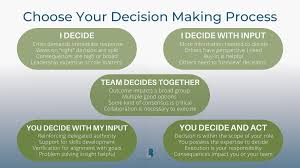The Importance of RFP Management
Request for Proposal (RFP) management is a critical process for businesses looking to procure goods or services from external vendors. It involves issuing a formal document outlining the requirements and expectations of the project, and then evaluating proposals from potential vendors to select the best fit.
Effective RFP management is essential for ensuring that businesses receive competitive bids, quality deliverables, and value for money. By clearly defining project requirements and evaluation criteria in the RFP, businesses can attract proposals that meet their needs and align with their strategic goals.
Furthermore, proper RFP management helps streamline the vendor selection process, saving time and resources for both the business and the vendors. It allows for a fair and transparent evaluation of proposals based on predetermined criteria, leading to better decision-making and ultimately successful project outcomes.
In addition, RFP management promotes collaboration between stakeholders within the business, as well as with external vendors. By involving key decision-makers in the development of the RFP and evaluation of proposals, businesses can ensure alignment with organizational objectives and foster stronger partnerships with vendors.
In conclusion, effective RFP management is crucial for businesses seeking to procure goods or services from external vendors. By following best practices in issuing, evaluating, and selecting proposals through a well-managed RFP process, businesses can achieve successful outcomes that drive growth and innovation.
5 Essential Tips for Effective RFP Management
- Clearly define project requirements and objectives in the RFP document.
- Establish a timeline with key milestones to keep the process on track.
- Communicate regularly with potential vendors to address any questions or concerns.
- Evaluate proposals objectively based on predetermined criteria.
- Ensure thorough documentation of the entire RFP process for future reference.
Clearly define project requirements and objectives in the RFP document.
One crucial tip for effective RFP management is to clearly define project requirements and objectives in the RFP document. By providing detailed and specific information about what the project entails, including goals, timelines, deliverables, and evaluation criteria, businesses can attract proposals that are tailored to their needs. Clear definition of project requirements in the RFP helps vendors understand the scope of work and enables them to submit proposals that are aligned with the business’s objectives, leading to better outcomes and successful project execution.
Establish a timeline with key milestones to keep the process on track.
Establishing a timeline with key milestones is a crucial tip for effective RFP management. By setting clear deadlines for each stage of the process, businesses can ensure that the RFP process stays on track and progresses smoothly. This helps to maintain accountability, manage expectations, and avoid delays that could impact the overall project timeline. Having key milestones also allows stakeholders to monitor progress, identify any potential bottlenecks early on, and make necessary adjustments to keep the process moving forward efficiently.
Communicate regularly with potential vendors to address any questions or concerns.
Regular communication with potential vendors is a key tip in effective RFP management. By staying in touch and addressing any questions or concerns they may have, businesses can foster transparency, build trust, and ensure that vendors have a clear understanding of the project requirements. This proactive approach not only helps to clarify expectations but also allows for any necessary adjustments to be made early on in the process, ultimately leading to stronger proposals and better outcomes for all parties involved.
Evaluate proposals objectively based on predetermined criteria.
When managing RFPs, it is crucial to evaluate proposals objectively based on predetermined criteria. By establishing clear evaluation criteria upfront, businesses can ensure a fair and transparent selection process that focuses on the most relevant aspects of each proposal. Objectively assessing proposals against predetermined criteria helps eliminate bias and subjectivity, leading to informed decision-making and ultimately selecting the vendor that best meets the business’s needs and objectives.
Ensure thorough documentation of the entire RFP process for future reference.
Ensuring thorough documentation of the entire RFP process is a crucial tip in RFP management. By keeping detailed records of each step taken during the RFP process, businesses can create a valuable resource for future reference and decision-making. Comprehensive documentation allows for transparency, accountability, and traceability, ensuring that all stakeholders are informed and aligned. It also enables businesses to learn from past experiences, identify areas for improvement, and streamline future RFP processes. Overall, maintaining thorough documentation is key to optimizing efficiency and effectiveness in RFP management.




